第11章
"In fact, had the scene of the narrative been the moon, or had it been a chapter from the Arabian Nights, the present Cabinet could not have less to do with it ... Is Lord Palmerston's administration to be condemned and displaced for what it never did and could not do, for what it only heard of when everybody else heard of it, for what was done by men whom it did not appoint and with whom it has not, as yet, been able to hold any communication?"To this impudent rodomontade of a FaFer which has all along vindicated the Canton massacre as a supreme stroke of Palmerstonian diplomacy, we can oppose a few facts painfully elicited during a protracted debate, and not once controverted by Palmerston or his subordinates. In 1847, when at the head of the Foreign Office, Lord Palmerston's first dispatch on the admission of the British Hong-Kong authorities into Canton was couched in menacing terms. However, his ardours were damped by Earl Grey, his colleague, the then Secretary for the Colonies, who sent out a most peremptory prohibition to the officers commanding the naval forces, not only at Hong Kong, but at Ceylon, ordering them, under no circumstances, to allow any offensive movement against the Chinese without express authority from England. On the 18th August, 1849, however, shortly before his dismissal from the Russell Cabinet, Lord Palmerston wrote the following dispatch to the British Plenipotentiary at Hong Kong:
"Let not the great officers of Canton nor the Government of Pekin deceive themselves ... The forbearance which the British Government has hitherto displayed, arises not from a sense of weakness, but from consciousness of superior strength. The British Government well knows that if occasion required it, British military force would be able to destroy the town of Canton, not leaving one single house standing, and could thus inflict the most signal chastisement upon the people of that city."Thus the bombardment of Canton occurring in 1856, under Lord Palmerston as Premier, was foreshadowed in 1849 by the last missive sent to Hong-Kong by Lord Palmerston, as Foreign Secretary of the Russell Cabinet. All the intervenin Governments have refused to allow any relaxation of the prohibition put upon the British representatives at Hong-Kong against pressing their admission into Canton. This was the case with the Earl of Granville under the Russell Ministry, the Earl of Malmesbury under the Derby Ministry, and the Duke of Newcastle under the Aberdeen Ministry. At last, in 1852, Dr. Bowring, till then Consul at Canton, was appointed Plenipotentiary. His appointment, as Mr.
Gladstone states, was made by Lord Clarendon, Palmerston's tool, without the knowledge or consent of the Aberdeen Cabinct. When Bowring first mooted the question now at issue, Clarendon, in a dispatch dated July 5, 1854, told him that he was right, but that he should wait till there were naval forces available for his purpose. England was then at war with Russia. When the question of the Arrow arose, Bowring had just heard that peace had been established, and in fact nava forces were being sent out to him. Then the quarrel with Yeh was picked. On the i oth of January, after having received an account of all that had passed, Clarendon informed Bowring that "Her Majesty's Government entirely approved the course which has been adopted by Sir M. Seymour and yourself." This approbation, couched in these few words, was not accompanied by any further instructions. On the contrary, Mr. Hammond, writing to the Secretary of the Admiralty, was directed by Lord Clarendon to express to Admiral Seymour the Government's admiration of "the moderation with which he had acted, and the respect which he had shown for the lives and properties of the Chinese."There can, then, exist no doubt that the Chinese massacre was planned by Lord Palmerston himself. Under what colours he now hopes to rally the electors of the United Kingdom is a question which I hope you will allow me to answer in another letter, as this has already exceeded the proper limits.
RUSSIA AND CHINA
New York Daily Tribune April 7, 1857
by KARL MARX
In the matter of trade and intercourse with China, of which Lord Palmerston and Louis Napoleon have undertaken the extension by force, no little jealousy is evidently felt of the position occupied by Russia. Indeed, it is quite possible that without any expenditure of money or exertion of military force Russia may gain more in the end, as a consequence of the pending quarrel with the Chinese, than either of the belligerent nations.
The relations of Russia to the Chinese Empire are altogether peculiar.